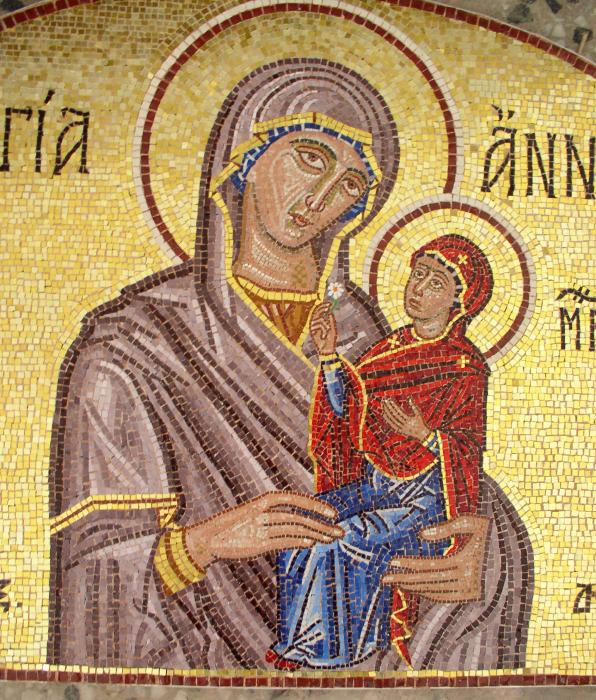Apart
from the canonical gospels, there are various non-canonical or apocryphal
gospels. These gospels filled the gaps left by the normal gospels. For
instance, almost nothing is told about the youth of Jesus, but in the
apocryphal gospels we have lots of information. No need to say that as
historical documents about Jesus these works are worthless, but as sources for
the development of what we may call Volksfrömmigkeit (piety of the masses –
some German words can capture a whole complex in one word) these writings are
invaluable. One of them is the Gospel of Pseudo-Matthew, a work of about the
late 6th early 7th century. It is based on older sources
and some sources which have not been traced - maybe phantasies of the unknown
author. If you wonder where the ox and the donkey in the stable come from, well
you will them here and many other details too, like the young Jesus cursing a
boy to death after he had destroyed the dams of sand made by Jesus. A few lines
later young Jesus curses another boy to death, so all parents are pretty afraid
of this young lad with mighty gifts!
The
Pseudo-Matthew especially reflects and in its turn has influenced the
divinisation of Mary. As is well-known, Christianity has no goddess - a shame I
think, as there is nothing wrong with good-looking goddesses like Parvati,
Artemis or Uma. In a world full of goddesses a religion without a goddess was
unthinkable and Mary was
quick to fill up this gap. In her iconography she resembles the Egyptian Isis
and she was and is venerated at places where before goddesses were venerated.
Pseudo-Matthew tells us about the birth and youth of Mary, which as she is a
very virtuous girl, is rather boring: praising God all day and de facto being the first nun.
Anna,
the mother of Mary and her husband Joachim are already at an advanced age and
still have no children, actually Anna is too old to become pregnant, but then a
miracle happens and she is pregnant from Joachim. They go to the temple and
young Mary at the age of 3 years runs up the stairs in her desire to serve God.
After this Anna praises the Lord in a song which mirrors the Magnificat,
Gospel of Pseudo-Matthew chapters 4 and 5
4. Post haec autem expletis mensibus
novem peperit Anna filiam, et vocavit
eam Mariam. Quam cum tertio anno ablactasset, abierunt simul Ioachim et Anna
uxor eius ad templum domini, hostias deo oblaturi, tradentes infantulam nomine
Mariam in contubernio virginum, in
quo die et nocte virgines in dei laudibus permanebant. Quae cum posita esset
ante foras templi, ita veloci cursu ascendit quindecim gradus ut penitus
retrorsum non respicet, neque, ut solitum est infantiae, parentes requireret. Unde
parentes eius solliciti uterque infantem requirentes, pariter ambo stupuerunt,
quousque eam invenerunt in templo, ita ut et ipsi templi pontifices mirarentur.
expleo:
to fill
pario peperi partum:
to give birth
ablacto
(1): to stop giving milk (non-classical Latin)
hostia:
sacrifice
obfero –tuli –latum:
to offer (oblaturi part.fut.)
contubernium:
companionship
foras
+ gen.: outside
velox:
quick, fast
cursus –us
(m): pace
penitus:
deeply, completely (non penitus: not
at all)
retrorsum:
backwards (non-classical Latin, it is a combination of retro and prorsum)
gradus -us
(m): step
soleo solitum:
to be wont, accustomed
require –sivi –situm:
to look after, search for
unde:
therefor
sollicitus:
worried
pariter:
in an equal degree
ambo:
both
quousque:
till finally
5.
Tunc Anna repleta spiritu sancto in conspectu omnium dixit:
Dominus deus omnipotens exercituum memor
factus verbi sui
visitavit
plebem suam in bona visitatione et sancta,
ut gentes quae insurgebant in nos, corda
eorum humiliet et ad se convertat:
aures
suas precibus nostris aperuit:
exclusit a nobis omnium exultationes
inimicorum nostrorum.
Sterilis
facta est mater,
et genuit
exultationem et laetitiam Israel.
Ecce
posita munera offerre domino meo,
et non potuerunt a me prohibere inimici
mei.
Deus
autem convertit cor eorum ad me,
et ipse dedit mihi gaudium sempiternum.
repleo –plevi –pletum:
to fill
Dominus exercituum:
Lord of (heavenly) hosts.
memor factus verbi
sui = memoravit verbum suum
auris –is
(f): ear
prex precis
(f): prayer
aperio aperui apertum:
to open
excludo exclusi
exclusum: to keep away, withhold
inimicus:
enemy
gigno genui genitum:
to produce, bring forth
laetitia:
gladness, joy
Israel:
dative!
munus muneris
(n): gift
sempiternus:
eternal
Translation:
More
about the Pseudo Matthew:
For
those wanting to read the complete text:
Mosaic of Saint Anna and Saint Mary. I can't trace any information about this mosaic.

No comments:
Post a Comment